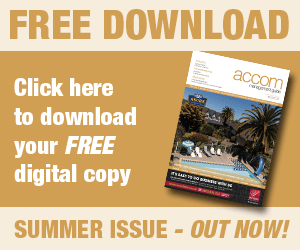Strong Increase in e-reservations
- Details
- Published Date
In recent years, both the New Zealand and global public's acceptance of e-commerce in general has increased dramatically, according to Mike Wells, a co-director of Roonsoft Technologies Ltd.
He says millions of tech-savvy and affluent new international tourists are coming online, especially from India and China, and with new technologies constantly emerging, it is increasingly easier for travellers to rapidly find and book their own accommodation online.
Mr Wells says Roonsoft Technologies has seen a strong, steady increase in online reservation activity since it began collecting data five years ago. "In March 2006, we saw just over three room-nights booked per total rooms available. Compare this with just over eight room-nights booked per room available in March 2010 – a 266 per cent increase," he said.
"With fully automated online systems now readily available to accommodation managers, the endless burden of manually managing availability on both your own website and the vast number of online channels is a thing of the past."
"It's easy to maximise property exposure for minimal cost, so the number of options available to guests is phenomenal."
"Smaller owner/operators are finally able to leave the back office and get on with what matters most – looking after guests, knowing that confirmed, advance online bookings will occur without manual intervention."
"There are two distinct types of online booking – the direct booking through your own website, and those from other online sources, the most obvious being Wotif.com.
'Last minute' sites like this are fantastic for guests. They provide a clear picture of availability and rates for entire regions, enabling quick decisions and instant bookings."
"However, we are seeing an increasing volume of direct bookings with evidence that the guest has researched a selection of properties on a directory, and then hunted out the property's own website to complete the reservation. If your biggest source of online business is not your own website, chances are there is something wrong with your website."
Mr Wells says one thing is clear: guests demand instant gratification and great value. If they are not able to make an instantly confirmed reservation, they will keep looking until they find somewhere they can.
"Interesting trends in lead time are also emerging. In 2006, seven per cent of bookings were made less than 48 hours in advance, and only four per cent were made more than three months in advance. Compare this to 2010 so far; 14 per cent are less than 48 hours ahead, and nine per cent more than three months. Manual management of availability data that far in advance is an enormous task, so good systems are a must. With the exception of key dates, such as regional events, guests know that they can get good value by booking later and not being disappointed.
Perhaps the recent global financial crisis has also contributed to this, with guests preferring to delay spending until absolutely necessary."
So what will the future bring? Those at Roonsfoft Technologies believe mobile internet enabled devices such as the iPhone may bring lead times down even further. "Corporate travellers are now able to research and confirm their accommodation in the taxi ride from the airport and this will likely become commonplace," Mr Wells said.
"One thing must not be forgotten however – the accommodation industry is about people and service. Any technology is merely a means to an end and the total quality of the guest experience, from booking to departure, will drive the trends of booking behaviour."


